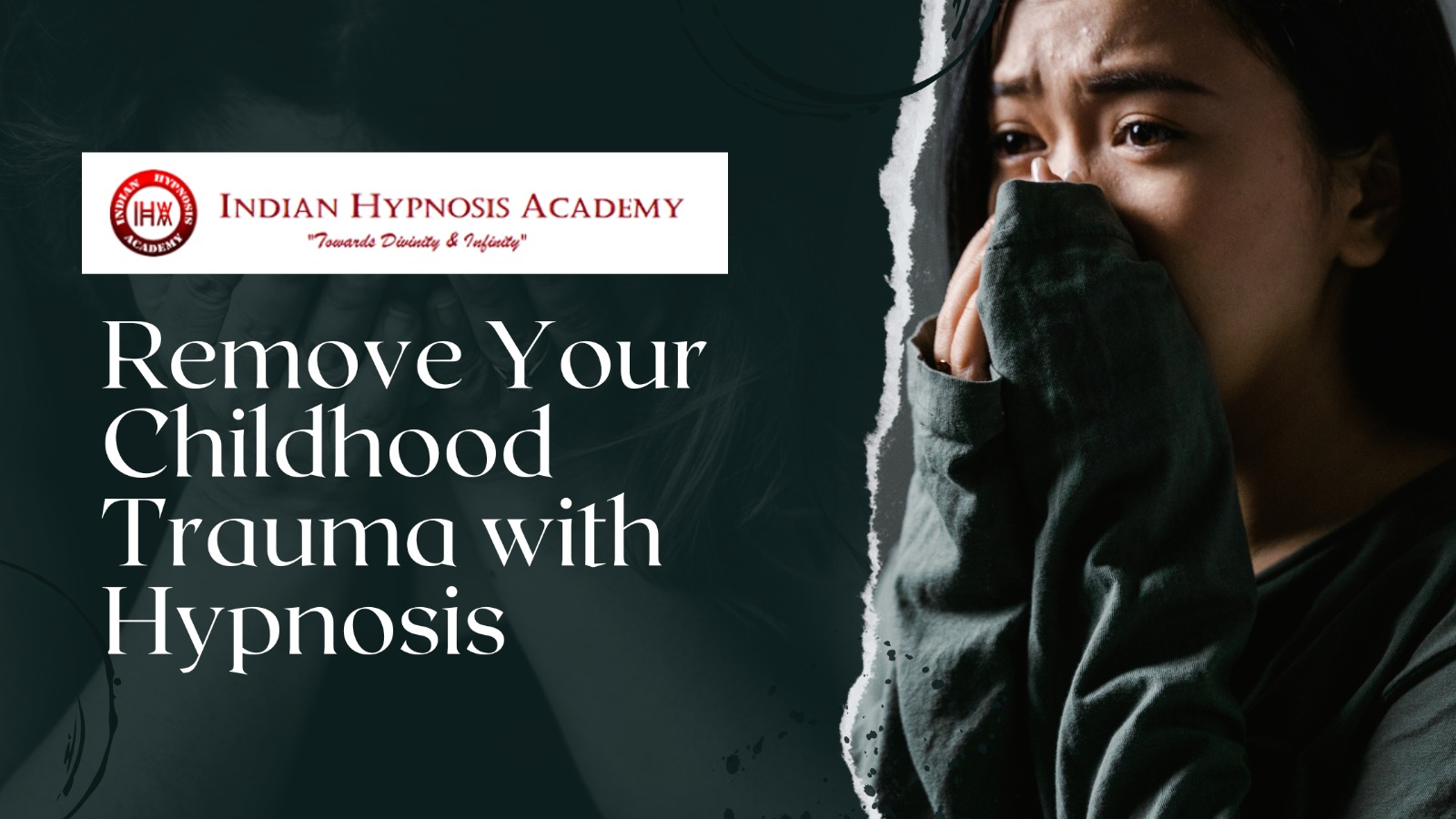Childhood trauma is a serious issue that can have long-lasting effects on an individual’s mental and physical health. It can affect their relationships, their ability to trust others, and their overall quality of life. While there are various treatments available for childhood trauma, hypnosis has become increasingly popular due to its effectiveness in removing the underlying causes of trauma.
Understanding Hypnosis and its Benefits for Childhood Trauma
Hypnosis is a state of mind where an individual is in a trance-like state and is more receptive to suggestions. In this state, they are able to access the deeper parts of their mind where traumatic memories and emotions are stored. This allows individuals to explore and process emotions that they may have been previously unable to access.
One of the benefits of hypnosis for childhood trauma is that it allows individuals to identify and resolve negative emotions and beliefs associated with their traumatic experience. Through hypnosis, individuals can gain a new perspective on their trauma and understand how it has affected their beliefs and emotions. This can help individuals to develop new coping strategies and improve their overall well-being.
Hypnosis can also help individuals to develop greater self-awareness and self-control. Through hypnosis, individuals can learn to identify their triggers and develop techniques to manage their emotional responses to those triggers. This can help to reduce the impact of childhood trauma on their daily life and allow them to lead a more fulfilling life.
Another benefit of hypnosis is that it can be a very relaxing and calming experience. Hypnosis techniques are designed to help individuals relax and let go of tension and stress. This can be particularly helpful for individuals who may be struggling with anxiety or depression as a result of their childhood trauma.
The Process of Hypnosis for Childhood Trauma
Hypnosis for childhood trauma involves a process of relaxation, visualization, and suggestion. The therapist begins by guiding the individual into a state of relaxation through deep breathing exercises and other relaxation techniques. This helps to calm the mind and prepare the individual for the hypnosis session.
Once the individual is in a relaxed state, the therapist will guide them through a series of visualizations and suggestions designed to reframe their beliefs and emotions around their childhood trauma. For example, the therapist may guide the individual to imagine a safe and secure environment where they feel loved and supported. This can help to alleviate feelings of fear and anxiety that may be associated with their childhood trauma.
Hypnosis is also used to help individuals develop new coping strategies and overcome negative thought patterns associated with their trauma. The therapist may suggest positive affirmations that the individual can repeat to themselves to reinforce positive feelings and beliefs. This can help to replace negative beliefs and emotions with positive ones.
The process of hypnosis for childhood trauma is often a gradual one, and it may take several sessions to see significant results. However, with continued practice and guidance from a trained therapist, individuals can make great strides in overcoming their childhood trauma.
Combining Hypnosis with Other Therapies
Hypnosis can be used in conjunction with other forms of therapy, such as cognitive-behavioral therapy (CBT). CBT is a type of therapy that focuses on changing negative thought patterns and behaviors. By combining hypnosis with CBT, therapists can help individuals to identify and change negative thought patterns associated with their childhood trauma.
The therapist may use hypnosis to help the individual access their subconscious mind, where negative beliefs and emotions are stored. They will then use CBT techniques to help the individual identify and change these negative thought patterns. For example, the therapist may help the individual to reframe negative thoughts into positive ones or teach them coping strategies to manage their emotions.
The combination of hypnosis and CBT can be highly effective in helping individuals to overcome their childhood trauma. By addressing the underlying causes of the trauma and changing negative thought patterns, individuals can develop new coping strategies and improve their overall well-being.
In addition to CBT, hypnosis can also be used in conjunction with other forms of therapy, such as talk therapy or art therapy. Talk therapy allows individuals to explore and process their emotions through conversation with a trained therapist. Art therapy allows individuals to express themselves through creative activities, such as drawing or painting.
By combining hypnosis with these therapies, individuals can gain a deeper understanding of their emotions and experiences, and develop new coping strategies to manage their trauma.
Finding a Qualified Hypnotherapist
If you are interested in using hypnosis to address childhood trauma, it is important to find a qualified hypnotherapist who is trained and experienced in working with trauma survivors. Look for a therapist who has specific training in hypnosis and trauma therapy, and who has a proven track record of success in helping individuals to overcome their childhood trauma.
You can start by asking for referrals from your primary care physician or mental health provider.
When choosing a hypnotherapist, be sure to ask about their training and experience, as well as their approach to working with trauma survivors. It is important to feel comfortable and safe with your therapist, as hypnosis can be a very intimate and vulnerable experience
The Importance of Self-Care and Support
While hypnosis and other therapies can be effective in addressing childhood trauma, it is important to practice self-care and seek support throughout the healing process. Trauma can have a profound impact on an individual’s life, and it can take time to process and heal from the experience.
Self-care activities such as exercise, meditation, and spending time in nature can help individuals to manage their emotions and reduce stress. Seeking support from loved ones, support groups, or a therapist can also be helpful in providing a safe and supportive environment to process emotions and share experiences.
It is important to remember that healing from childhood trauma is a journey, and there may be setbacks along the way. However, with the right support and tools, individuals can learn to manage their emotions and move towards a more positive and fulfilling life.
Conclusion
Childhood trauma can have a profound impact on an individual’s life, but it doesn’t have to define their future. Hypnosis is a powerful tool that can help individuals overcome the negative beliefs and emotions associated with their childhood trauma. Through the use of hypnosis, individuals can gain a new perspective on their trauma and move forward with confidence and strength. If you or someone you know is struggling with childhood trauma, consider hypnosis as a viable treatment option.
Frequently Asked Questions (FAQs)
1. What is childhood trauma?
Childhood trauma refers to experiences that can cause emotional and psychological distress in childhood, such as abuse, neglect, or witnessing violence.
2. How does hypnosis help with childhood trauma?
Hypnosis can help individuals access the deeper parts of their mind and process and release negative emotions associated with their childhood trauma.
3. Is hypnosis safe for addressing childhood trauma?
Hypnosis is generally safe when performed by a trained and licensed therapist for addressing childhood trauma. Hypnosis is a natural state of heightened relaxation and focus that can be induced by a therapist through guided visualization and suggestion.
4. Can hypnosis erase memories of childhood trauma?
No, hypnosis cannot erase memories of childhood trauma. However, it can help individuals process and release negative emotions associated with the trauma.
5. How many hypnotherapy sessions are needed to address childhood trauma?
The number of hypnotherapy sessions needed to address childhood trauma varies depending on the individual’s needs and the severity of their trauma. Some individuals may see improvement after just a few sessions, while others may require more.
6. Is hypnosis covered by insurance for treating childhood trauma?
Insurance coverage for hypnosis may vary depending on the individual’s insurance plan. It is recommended to check with the insurance provider to see if hypnosis is covered for treating childhood trauma.
7. Can hypnosis be used as a standalone therapy for childhood trauma?
While hypnosis can be effective in addressing childhood trauma, it is recommended to combine it with other therapies, such as cognitive-behavioral therapy, to maximize the benefits.
8. Are there any side effects of hypnosis for treating childhood trauma?
Side effects of hypnosis are generally mild and include headaches, dizziness, and nausea. However, these side effects are rare and usually temporary.
9. How long does it take to see results from hypnosis for childhood trauma?
The timeline for seeing results from hypnosis for childhood trauma varies depending on the individual’s needs and the severity of their trauma. Some individuals may see improvement after just a few sessions, while others may require more.
10. Can hypnosis be used for addressing other types of trauma besides childhood trauma?
Yes, hypnosis can be used to address other types of trauma, such as PTSD, phobias, and anxiety.
11. Can children undergo hypnosis for childhood trauma?
Yes, children can undergo hypnosis for childhood trauma, but it is recommended to work with a therapist who specializes in hypnosis for children.
12. Is hypnosis a permanent solution for childhood trauma?
While hypnosis can help individuals process and release negative emotions associated with childhood trauma, it is not a permanent solution. Continued therapy and self-care practices are recommended to maintain emotional wellbeing.
13. Can hypnosis be used for addressing trauma in adults?
Hypnosis has been found to be an effective therapy for addressing trauma in adults, particularly for those suffering from PTSD. The therapy works by accessing the deeper parts of the mind, where traumatic memories are stored, and helping individuals process and release the negative emotions associated with these memories.
14. Can hypnosis be performed remotely for childhood trauma?
Yes, hypnosis can be performed remotely through videoconferencing or phone sessions. This can be particularly helpful for individuals who may live in remote areas or have mobility issues. However, it is important to work with a licensed and experienced therapist who is trained in remote hypnosis to ensure the safety and effectiveness of the therapy.
15. Is hypnosis effective for everyone in addressing childhood trauma?
While hypnosis can be effective in addressing childhood trauma, its effectiveness varies depending on the individual’s needs and the severity of their trauma. It is recommended to work with a therapist to determine if hypnosis is the right therapy for addressing childhood trauma.
References:
- https://medium.com/the-ascent/how-hypnosis-healed-my-childhood-trauma-within-minutes-acdc54aac462
- https://www.verywellmind.com/can-hypnosis-unlock-memories-of-childhood-abuse-22398
- https://psychcentral.com/health/hypnotherapy-trauma
- https://www.clinicalhypnotherapy-cardiff.co.uk/erase-bad-memories-or-forget-someone-with-hypnotherapy/
- https://www.mayoclinic.org/tests-procedures/hypnosis/about/pac-20394405


